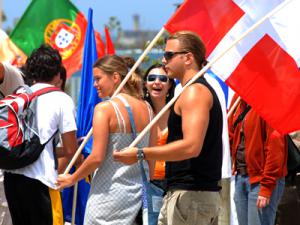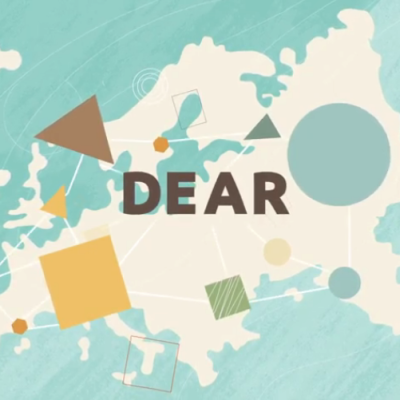“Education is one of the foundations for development and Erasmus Mundus addressed the needs of developing countries in higher education. We tend to focus on basic education in our development programmes but this is not enough. We need to invest in a continuum of education and Erasmus Mundus provided this opportunity for students and for institutions to increase their capacity,” said Veronique Lorenzo, Head of Unit for Education at the European Commission’s Directorate-General for International Cooperation and Development.
Erasmus is a well-known European student exchange programme that began in 1987 and as of 2014, is part of the new Erasmus+ programme. Erasmus Mundus, its sister programme at a global level has now also been integrated into Erasmus+.
“We see Erasmus Mundus as an opportunity to communicate, to learn and to exchange experiences and knowhow with regions outside the European Borders and this is very enriching,” said Bárbara Costa, Director of the International Office at the University of Porto.
Ms Costa has been working in the International Office for more than 15 years. During that time she has welcomed students to Portugal from many different countries such as Argentina, Samoa, Vietnam and Kazakhstan. Prior to Erasmus Mundus the university mostly worked with European and Portuguese speaking countries. Today “through Erasmus Mundus Porto is open to the world. […] So you see how big the impact was within the institution as well.”
|
Running from 2004 to 2013, Erasmus Mundus was implemented by the Education, Audiovisual and Culture Executive Agency (EACEA) for the European Commission. It fostered partnerships between European and non-European higher education institutions by promoting structured cooperation, providing scholarships and facilitating mobility* arrangements at all academic levels. It is now part of the Erasmus+ programme. The aims of the different actions were:
* Within the education sector, mobility is defined as when a higher education student or staff member studies or works elsewhere for a certain period of time. |
Some of the students taking part in Erasmus Mundus had never previously left their countries, nor learnt a foreign language. “I had some years ago a student from a very small city in Brazil. It was the first time she was leaving not only the country but her hometown. So this a huge experience for most of them, it’s indeed a life changing experience, not only at academic levels but also at personal levels,” said Ms Costa.
Erasmus Students at the University of Porto
In Porto, while some courses are taught in English, the majority are in Portuguese. A few years ago Ms Costa welcomed students from Fiji. “They didn’t speak a word of Portuguese and they were enrolled in 100% Portuguese taught course. So they were a little bit scared in the beginning,” she explained. However, with language courses and support from the university they progressed immensely. “By the end of their mobility they were fascinated with the language and also with the culture. Because we cannot forget that when we welcome students from all over the world we need to ensure that the cultural immersion is in fact a reality,” she added.
Mobilities were also available through Erasmus Mundus for academic and administrative staff. The latter is “a key element when we consider the capacity building aspect of the programme because staff mobility at an administrative level have increased the internationalisation within their educational institution and the capacity building,” explained Lorenza Gambacorta, a Programme Adviser for Erasmus Mundus working at EACEA.
Many of the administrative staff taking part came from universities with no international office. Returning from their placements they were able to create, and in other cases restructure, international offices allowing their university to forge partnerships with others around the world.
Brutus Malada is a Project Officer for Higher Education at the Delegation of the European Union to the Republic of South Africa, where Erasmus Mundus has been very successful. The Delegation works closely with the government to raise awareness on higher education programmes. Between 2009 and 2013 there were more than 700 beneficiaries of Erasmus Mundus, of which almost a quarter were staff members. Now the delegation is also promoting the new programme, Erasmus+.
“What we see in South Africa is that there has been greater participation by what we call historically disadvantaged institutions, which did not have resources, do not have the kind of adequate capacity to compete on international programmes,” said Mr Malada. He hopes that more and more of these will take part in programmes like Erasmus Mundus as it helps them to develop their capacities and also at a higher level to develop their country. “I hope that the [next] programme will contribute to skills development, intellectual development and thereby contribute to reducing poverty and inequality.”
| Overcoming culture shock to discover new ideas: Daniel Kibirige shares his first-hand experience of an Erasmus Mundus scholarship, travelling from South Africa to Europe in 2011. |
By the end of 2014 over 38,000 mobilities had already taken place through Erasmus Mundus at all different academic levels, with a further 7,000 in progress.
Generally the programme is a success. A survey recently launched among the students and staff who have benefitted from a scholarship within the Partnership Action showed that for most of them their career prospects, professional competences and skills improved thanks to the mobility experience. “More than 26% of the respondents [8 140] declared that the Erasmus Mundus experience helped them finding a job when back home,” said Elena Palavrova, Project officer at EACEA.
| Find out more about Erasmus Mundus and watch a video where Ms Palavrova shares the survey findings in the blog post: Erasmus Mundus – First Results and Observations. |
The new programme Erasmus+ has already started. “The novelty of the programme now is in fact that it’s open to the world,” as under Erasmus+ many more actions are open to partner countries, explained Deirdre Lennan, International Policy Officer at DG Education and Culture. It replaces seven pre-existing programmes, including both Erasmus and Erasmus Mundus, bringing them all under ‘one European programme’. Ms Lennan noted the advantages “one entry point, simplified procedures, and a community of practice altogether. So we hope to enhance synergies between the different actions, between the sectors.”
Ms Lorenzo, believes that this type of cooperation is extremely important with a high impact on beneficiaries’ lives. They return to their countries with a better understanding of and acloser relationship to the EU. “Beyond development it’s in our mutual interest to foster this kind of closer partnership,” she added.
The development priorities of Erasmus+ must of course reflect the European Commission's own development priorities. The new programme is based strongly on the Agenda for Change with a greater focus on low-income countries. It also address equity concerns: both at the level of the countries/institutions and at the level of the people.
“We must provide the opportunity of access to marginalised people, ethnic minorities, poor disabled people,” said Ms Lorenzo. Colleagues in EU delegations around the world, like Brutus Malada, will play an important role in achieving this. They are the ‘frontline in the field’ explained Ms Lorenzo, and also responsible for monitoring the success of programmes.
|
DG International Cooperation and Development's Education Unit is currently setting up a Higher Education group on capacity4dev.eu for this purpose. It will provide a platform for exchange among delegations and also for dissemination of best practices. Content includes further information on Erasmus Mundus and the Intra-ACP Academic Mobility Scheme [coming soon]. You can also find out more about a lunchtime conference on Higher Education on 26 February 2015. |
|
Some of this year's deadlines for the Erasmus+ calls are closed but it is still possible for Higher Education Institutions to apply for the mobility actions. For scholarship opportunities, students and staff can consult this link. It will be important to look at the response to these first calls and the first round of mobilities, as lessons learnt, if relevant, will be implemented in the next calls. |
This collaborative piece was drafted with input from Stéphanie Schumacher, Deirdre Lennan, Lorenza Gambacorta, Brutus Malada and Bárbara Costa with support from the capacity4dev.eu Coordination Team. Teaser image from The Village Erasmus+ video and University of Porto students image copyright of UP.




Log in with your EU Login account to post or comment on the platform.